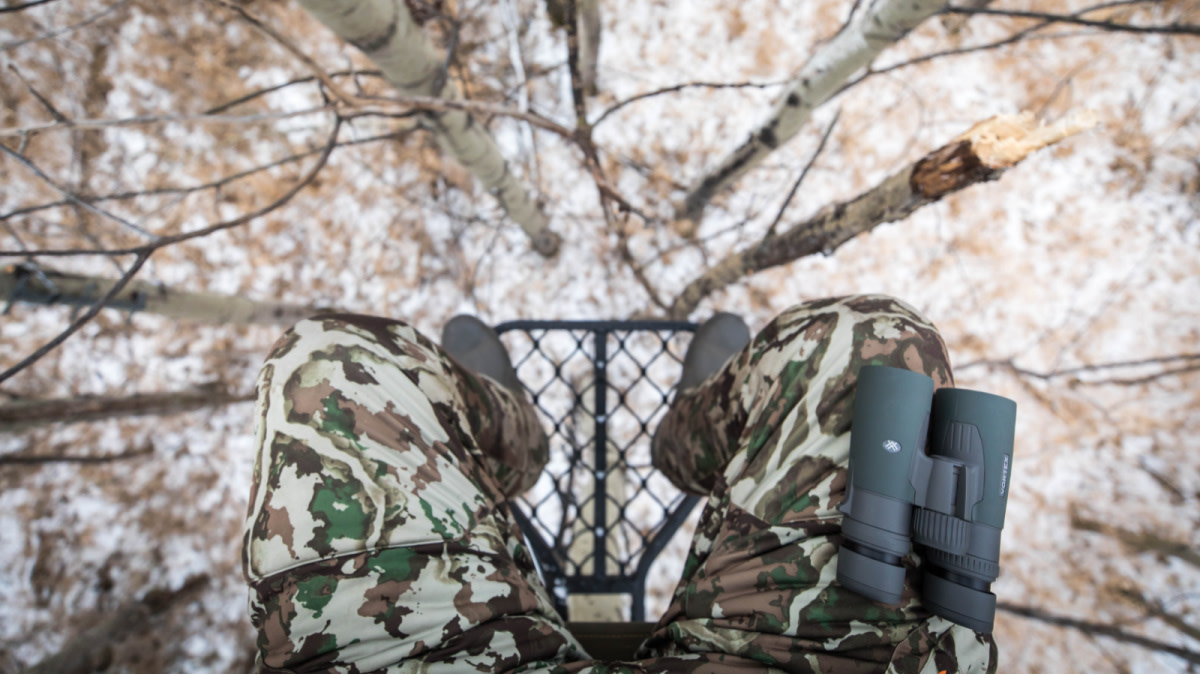
Consistent whitetail success and enjoyment hinges on two very different aspects of every hunt.
The first involves all of the stuff we can’t control, like weather, the actions of other hunters, and the cosmic, known-only-to-them whims upon which all deer operate. The second is what we can control, which can just as easily tank any random sit. Defaulting to an easy field edge stand when you should be in the timber, ignoring loads of fresh sign in favor of a predetermined strategy, or maybe just staring at your phone when you should be staring at the trail are all examples of these.
Much worse than one bad morning or evening is a highly anticipated stretch of hunting days that goes south. This might be the over-the-road trip you’ve planned for all year or your home-state rutcation.
While the usual culprits can step in to dampen your success during these types of hunts, it’s the things we do to ourselves that hurt the most. According to New York deer junkie, Tim Kent, these are avoidable, yet common traps that so many of us blindly walk into.
“It’s tough because we all have our own commitments, but not giving yourself enough time for a hunt is a bad idea,” Kent said. “This goes for a whole trip in regard to the days, but also the hours on stand during any given day that you’re willing to put in.”
Even if you’re traveling to hunt an unbelievable property, a weekend might not cut it. For over-the-road public land trips, a week or even 10 days, is often not enough. This is the reality of something challenging like deer hunting, and as Kent pointed out, also boils down to using whatever time you’ve given yourself. If that’s a long weekend, so be it. But don’t get out of that stand at 9 a.m. when you could sit until 11, or all day.
The time-on-stand problem, at least when it comes to home-state hunts, is sometimes easier to remedy than on over-the-road hunts. This is why Kent recommends being cautious about traveling too far for deer.
“Be honest about your opportunities,” said Kent. “Instead of driving 1000 miles to Kansas and only having a few days to hunt, could you stay closer to home and put in more time?”
A lot of us get caught up in the dreamland scenario and feel like to have a good hunt, it’s a premier state or nothing. This is a symptom of something that will ruin a deer hunt faster than a pack of coyotes or an unseasonably warm weather front. That “something” is unrealistic expectations and is probably the biggest reason why traveling hunters come back home unfulfilled.
This is fodder for a whole article in and of itself, but I’ll just say this—be honest about your chances, your skills and commitment level, and what size of deer would actually make you happy. Try to do this as objectively as possible and be open to the possibility that you might get it wrong during your pre-hunt planning. Many deer hunters have gone to Iowa thinking about 170s, only to realize five days later that they’d be super happy with a 120-incher. Think of your deer time as an experience, which it is, and not just a means to a bloody end.
While thoughts of easy big bucks often meet reality in a way that can knock us down in a hurry, there’s a less-obvious hunt ruiner that most folks don’t see coming. This involves general life, and often, work.
Kent, a self-employed owner of a marketing business and real estate agent for Whitetail Properties, said there are two things that will suck the joy right out of a deer hunt.
“If you’ve got a disgruntled spouse at home, it’s over. You’ve got to take care of your family before you leave, otherwise it’s a bad situation. You’ve also got to get your shit together with work, because if you don’t, the distractions will creep in and take away from your hunt.”
I’ve seen and experienced both of these and couldn’t agree more. My wife and I have a solid understanding of my hunting time both from a professional perspective and as personal passion, but it wasn’t always that way. When our twin daughters were little, we fought about my time away, and if it didn’t get resolved before I left, it was never a good situation. I also, not coincidentally, didn’t fill as many tags during those hunts.
I’ve watched excited buddies get one hunt-altering phone call from their spouse on the way out of town. One phone call or email from your boss can do the same thing. Trips where the weight of life falls heavy on your camo-clad shoulders aren’t much fun. They usually end quicker than planned, and not from filling a buck tag the first sit, either.
This is where it’s important to remember that deer hunting might be the driving force that wakes you up in the morning, but most other people in your life probably don’t care. To me, it would be like someone taking a week to drive 1000 miles to golf. I have nothing against golf, but I wouldn’t walk across the street to do it for free. It’s just not my thing.
Maybe deer hunting isn’t your spouse’s thing, or your boss’s thing. Understand that, but also set some boundaries and make it clear how important your treestand time is. If you do and give yourself enough time to hunt with realistic expectations, odds are you’ll have more fun—and fill more tags.
Feature image via Captured Creative.




